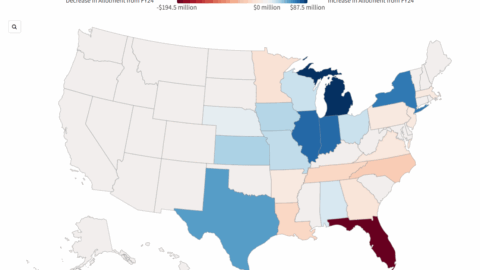With TCE, EPA proposes first toxic chemical ban in 27 years under TSCA
Jennifer McPartland, Ph.D., is a Senior Scientist with the Health Program.
Today, EPA issued a proposed rule to ban uses of trichloroethylene (TCE) as a spot cleaning agent in dry cleaning and as an aerosol spray degreaser in commercial and consumer settings. This marks the first time in 27 years EPA is proposing to restrict the use of a chemical and represents a significant milestone under the Lautenberg Act.
The proposed ban is long overdue for a chemical that is highly toxic and produced in very high volumes (255 million pounds annually). TCE is classified as a known human carcinogen by numerous authoritative bodies, including the National Toxicology Program (NTP), the Agency for Toxic Substances and Disease Registry (ATSDR), EPA’s Integrated Risk Information System (IRIS), and the International Agency for Research on Cancer (IARC). Many studies of TCE also reveal additional health impacts including but not limited to immune toxicity, developmental toxicity (e.g., fetal cardiac defects), and neurotoxicity (e.g., Parkinson’s disease).
The proposed rule summarizes the serious concerns:
These adverse health effects include developmental toxicity (e.g., cardiac malformations, developmental immunotoxicity, developmental neurotoxicity, fetal death), toxicity to the kidney (kidney damage and kidney cancer), immunotoxicity (such as systemic autoimmune diseases, e.g., scleroderma, and severe hypersensitivity skin disorder), non-Hodgkin’s lymphoma, reproductive and endocrine effects (e.g., decreased libido and potency), neurotoxicity (e.g., trigeminal neuralgia), and toxicity to the liver (impaired functioning and liver cancer).
EPA’s proposed rule follows on its 2014 risk assessment of TCE that demonstrated that current levels of exposure to TCE from these uses pose unacceptably high risks to workers and occupational bystanders in the context of dry cleaning and aerosol spray degreasing; and additionally, to consumers when used as an aerosol spray degreaser in residential settings.
Prompt finalization of this and other proposed rules in the pipeline (a second TCE rule addressing other uses and a rule to restrict two chemicals’ used in paint strippers) are necessary to protect public health and would represent the first tangible risk reduction actions taken under the Lautenberg Act.












